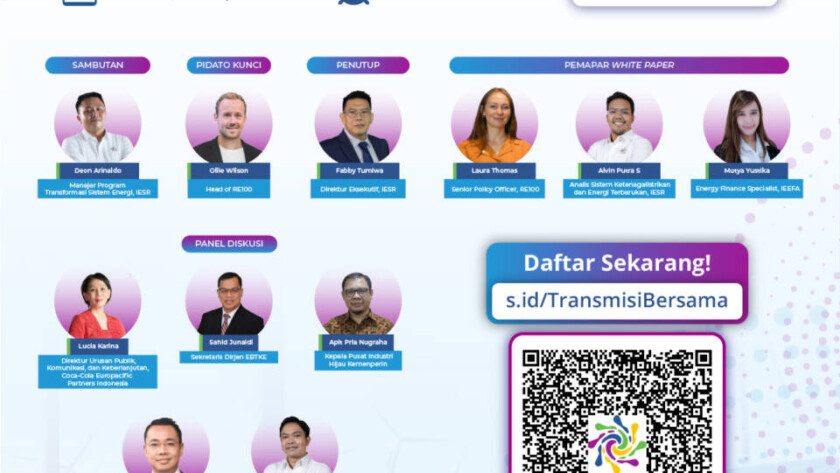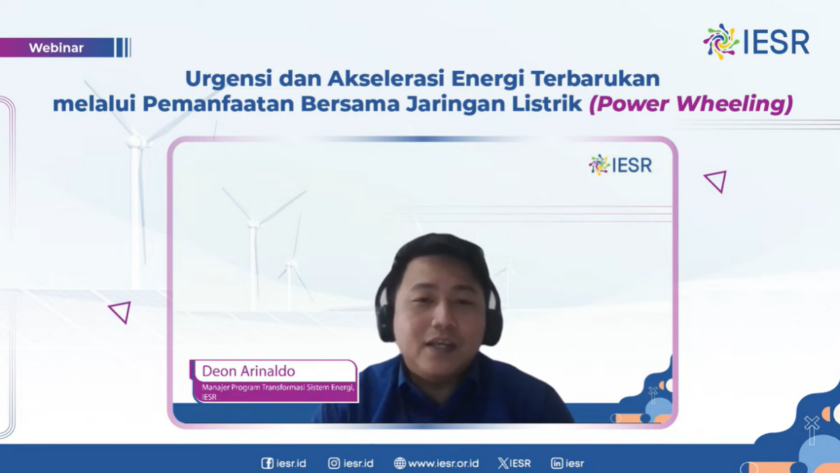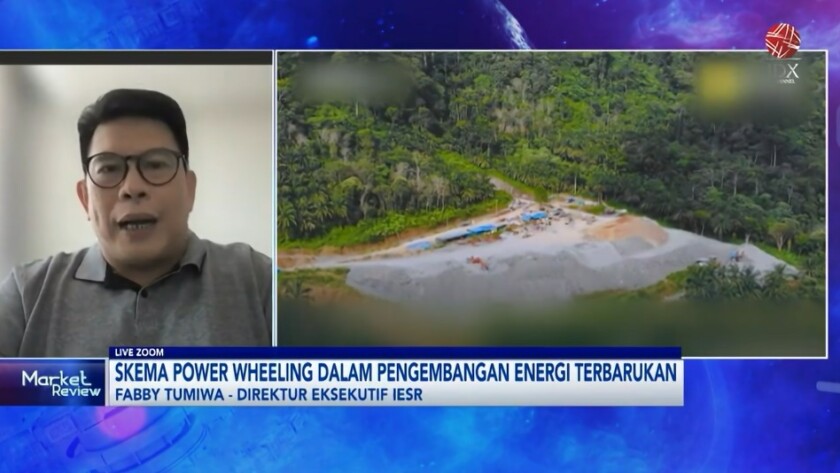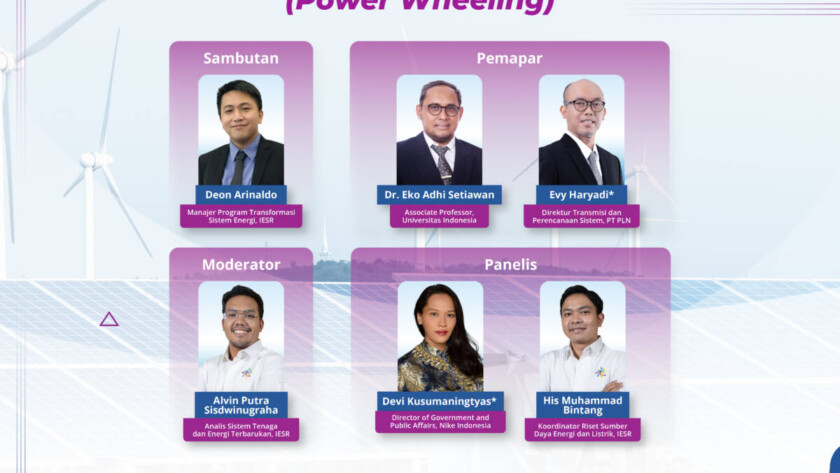IESR noted that Indonesia has 333 gigawatts (GW) of renewable energy (NRE) potential that is feasible and ready to be developed. Read more on Tempo.

Replay Event
Background
Indonesia’s energy transition is entering a pivotal phase, with the government targeting 75 GW of additional renewable capacity by 2040 as part of its broader commitment to phasing out coal and achieving net-zero emissions by 2060.
However, corporate investment in renewable energy is still constrained by limited procurement mechanisms and geographical…

Jakarta, 25 September 2024 - The establishment of a transmission network joint utilization scheme (wheeling) to accelerate the utilization of renewable energy in the New Energy and Renewable Energy Bill (EBET Bill) is still being discussed by the government and the House of Representatives (DPR). The Institute for Essential Services Reform (IESR) encourages the implementation…
Executive Director of the Institute of Essential Services Reform (IESR), Fabby Tumiwa, stated that there are State-Owned Enterprises (SOEs) operating outside the electricity sector that are forced to use PT PLN's (Persero) transmission network through a power wheeling scheme. Read more on Warta Ekonomi.

Jakarta, 17 September 2024 - The scheme of utilizing a shared transmission network or power wheeling that is included in the discussion of the New and Renewable Energy Bill (EBET) has drawn pros and cons. The government proposes that this scheme be included in the EBET Bill to accelerate renewable energy development in Indonesia. However,…

Background
Power wheeling is a mechanism that allows the owner of a power plant to deliver electricity to consumers using an existing transmission network owned by another party. In the context of Indonesia's electricity market, PLN as the owner of the electricity network is the main stakeholder in the application of this mechanism, apart from…
The Institute for Essential Services Reform (IESR) believes that regulating the power wheeling scheme in the New and Renewable Energy Bill (EBET Bill) will accelerate the development and adoption of renewable energy in Indonesia.
Read more on ANTARA.

Jakarta, July 10, 2024 - The Institute for Essential Services Reform (IESR) believes that regulating the power wheeling scheme in the New and Renewable Energy Bill (EBET Bill) will accelerate the development and adoption of renewable energy in Indonesia. This will ultimately contribute to achieving the renewable energy mix target and reaching net zero emissions…
The Institute for Essential Services Reform (IESR) supports the inclusion of power wheeling in the New Energy and Renewable Energy Bill (EBET Bill). The scheme is planned to be included in the provisions of fulfilling EBET supply Articles 29A and 47A, in the form of a form of network utilization cooperation (open access). Read more…

Fabby Tumiwa, Direktur Eksekutif IESR
Jakarta, May 20, 2024- The government is again pushing for the power wheeling scheme to be included in the Draft New and Renewable Energy Bill (RUU EBET). This scheme will fulfill New and Renewable Energy (NRE) supply Articles 29A and 47A in network utilization cooperation (open access).
The power wheeling scheme…
The Institute for Development of Economics and Finance (Indef) highlights the implementation of power wheeling, which poses a risk of increasing the state's fiscal burden because Indonesia already has an oversupply of electricity.
Read more on Medcom.id
Executive Director of the Institute for Essential Services Reform (IESR), Fabby Tumiwa, explains there is nothing to worry about related to the "power wheeling" scheme.
Read more on ANTARA.
